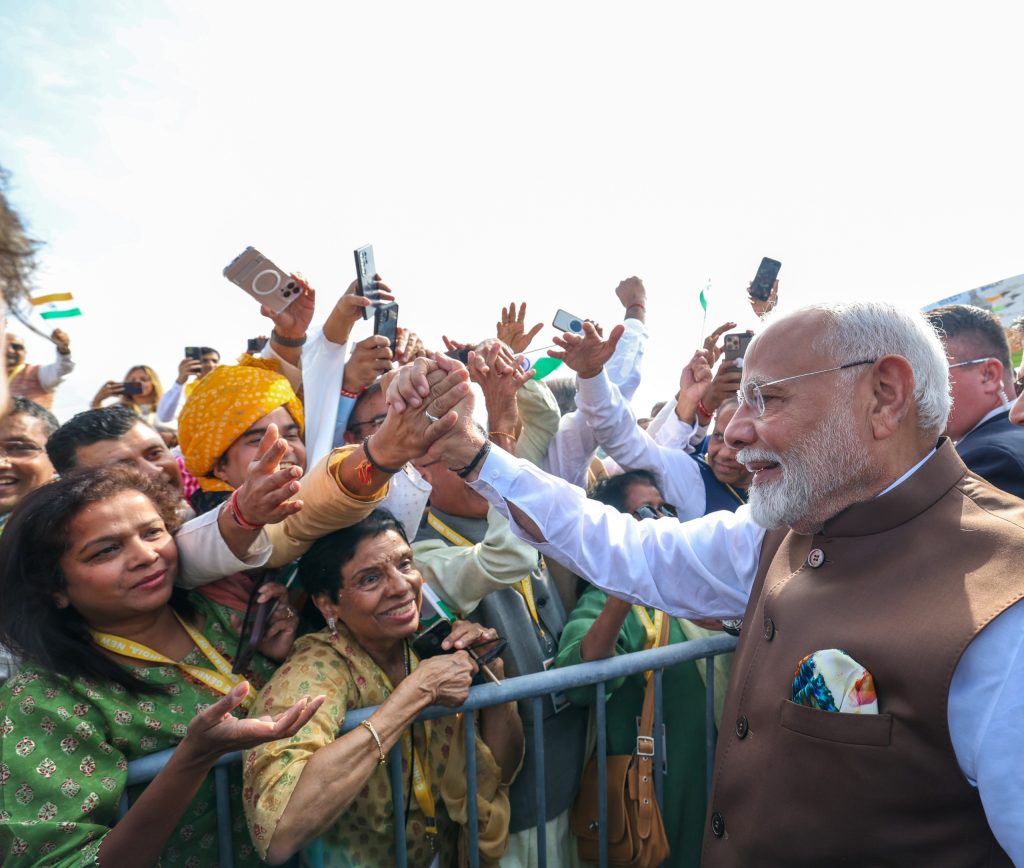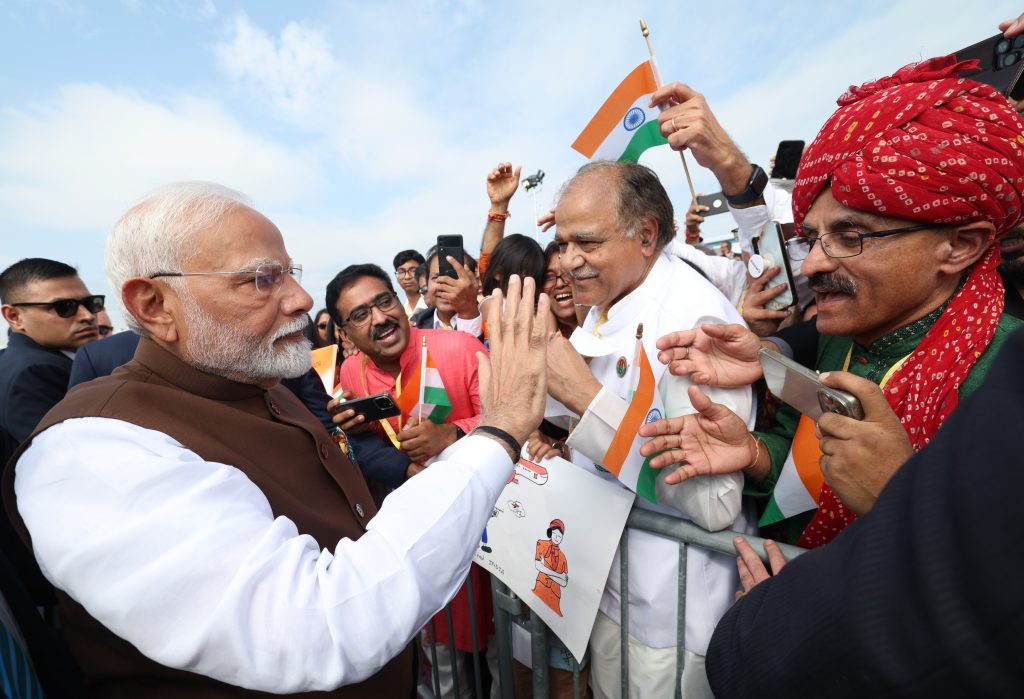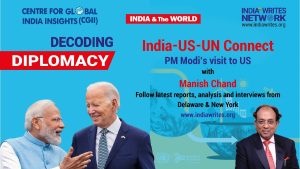
WILMINGTON, DELAWARE: India’s Prime Minister Narendra Modi began his visit to the US from US President Joe Biden’s hometown with a grand welcome, an important trip that will not only galvanise India’s relations with the US, but also with the other three Quad countries. He was feted at the Philadelphia International Airport by members of the Indian diaspora and local officials.
PM Modi’s engagements in Delaware include the Quad summit and bilateral meetings with the leaders of the US, Japan and Australia. The sixth Quad summit, being held in the backdrop of festering conflicts in Gaza, Ukraine and rising tensions in the Indo-Pacific, is expected to bolster intra-Quad cooperation in stabilising a turbulent international landscape.
President Biden, visibly enthusiastic about summit gathering, took to social media to welcome PM Modi. “Today, I’ll welcome Prime Ministers Albanese, Modi, and Kishida to my home: Delaware. These leaders aren’t just essential to ensuring a free and open Indo-Pacific – they’re friends of mine and friends of our nation. I look forward to all we’ll accomplish in the Summit ahead,” Mr Biden tweeted, emphasizing the close personal ties he shares with the Quad leaders.
Upon arrival, Modi was greeted by a cultural performance at Wilmington’s Hotel Dupont, underlining arm ties between India and the U.S.
The importance of this summit is amplified by the evolving global dynamics. The Indo-Pacific region’s security and stability, particularly in light of China’s growing influence, will take center stage. China’s increasing assertiveness in the region and its trade practices have been a major concern, with John Kirby, White House Spokesperson, noting earlier, “It would be irresponsible if they didn’t talk about the challenges caused by aggressive People’s Republic of China military action.”
In addition to security concerns, the summit is expected to produce significant outcomes in areas such as technological collaboration and humanitarian cooperation. One of the key highlights is the announcement of joint coast guard exercises in the Indo-Pacific, a move designed to reinforce the Quad’s commitment to regional peace and stability. The Quad leaders are also set to expand the Indo-Pacific Partnership for Maritime Domain Awareness (IPMDA), a program monitoring illegal fishing and humanitarian crises in the Indian Ocean region, with India playing a leadership role.

While the Quad has often been portrayed as a counterbalance to China, officials have been keen to stress that it is a partnership, not a military alliance. The Quad fellowship, aimed at fostering education in science and technology across member nations, is another key area of collaboration, set to expand to Southeast Asian countries this year.
As PM Modi gears up for his bilateral talks with President Biden, both leaders will focus on deepening cooperation across a range of fields, including defense, space, and technology. The meeting could also see discussions on a potential multi-billion-dollar deal for India to acquire 31 predator drones, further cementing the defense ties between the two nations.

(Manish Chand, is CEO, Centre for Global India Insights, a think tank focused on global affairs, and Editor-in-Chief, India Writes Network and India and the World. He is in Wilmington, Delaware to report on and analyse the Quad summit).
Author Profile

- Manish Chand is Founder and Editor-in-Chief of India Writes Network (www.indiawrites.org) and India and World, a pioneering magazine focused on international affairs. He is CEO, Centre for Global India Insights, an India-based think tank focused on global affairs.
Latest entries
 India and the WorldFebruary 27, 2026Modi visit: India-Israel partnership enters a new era
India and the WorldFebruary 27, 2026Modi visit: India-Israel partnership enters a new era India and the WorldFebruary 24, 2026Unravelling Modi’s Israel journey: What to expect
India and the WorldFebruary 24, 2026Unravelling Modi’s Israel journey: What to expect India and the WorldFebruary 17, 2026South-by-South: Focus on people-centric solutions at India AI summit
India and the WorldFebruary 17, 2026South-by-South: Focus on people-centric solutions at India AI summit India and the WorldFebruary 7, 2026Modi hails interim India-US trade deal, Goyal says no concessions made on agriculture
India and the WorldFebruary 7, 2026Modi hails interim India-US trade deal, Goyal says no concessions made on agriculture







